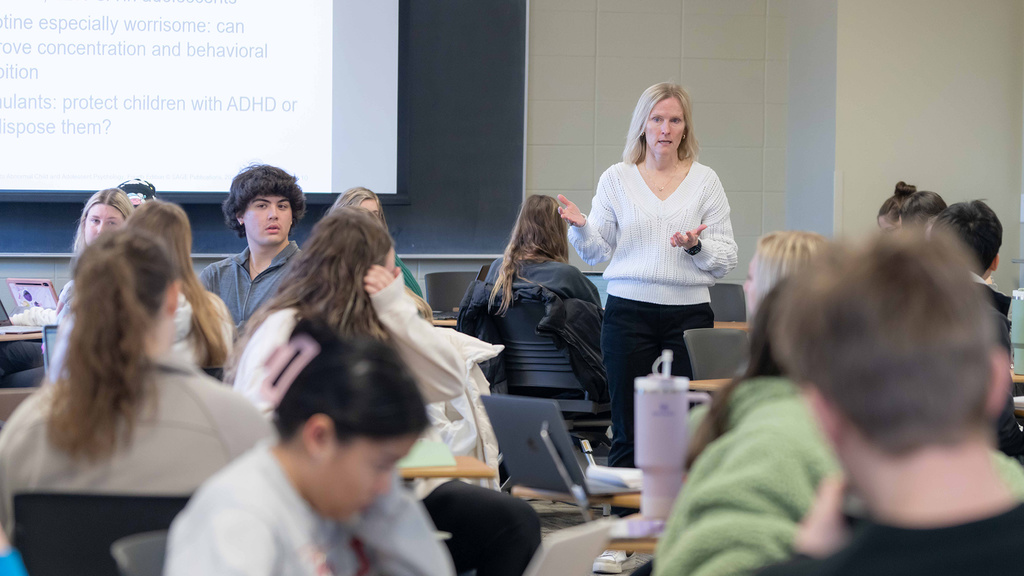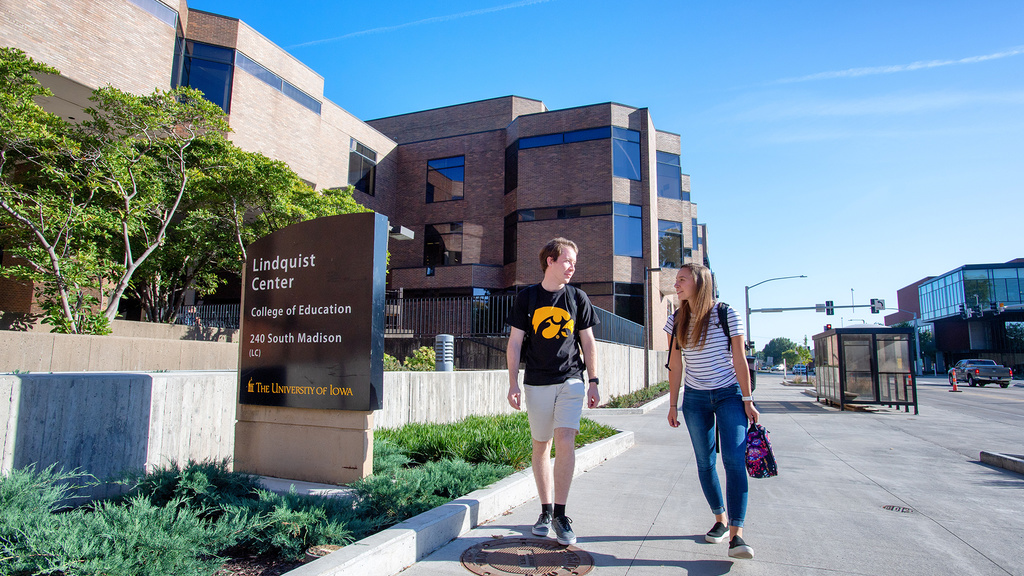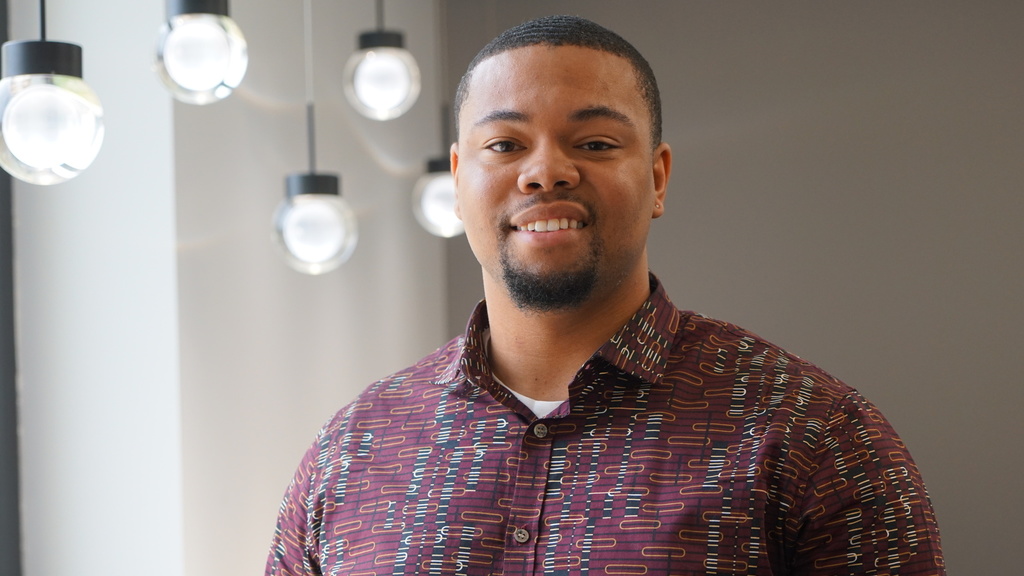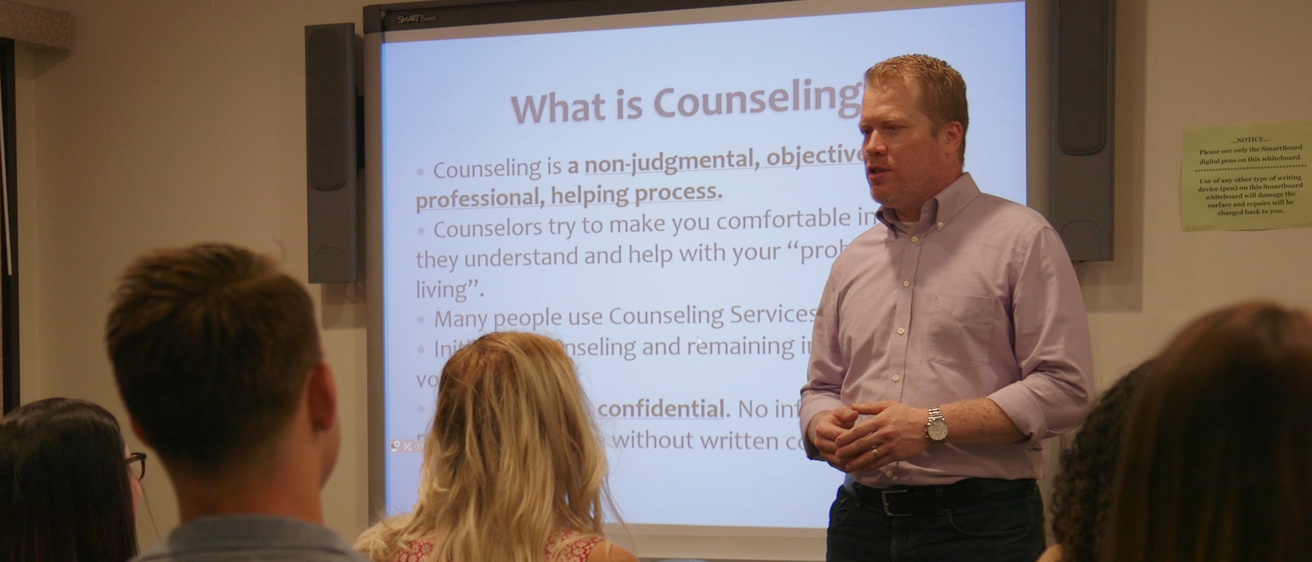Our PhD program in Counselor Education and Supervision (CES) will provide you with the knowledge and skills related to general counseling (including mental health and school counseling), teaching, consulting, supervising counselors, and conducting research. Graduates enter professional work as counselors, counselor supervisors, counselor educators, researchers and/or consultants, or work in other positions requiring expertise in human relations.
# 11
Student Counseling Program (U.S. News & World Report)
Top-ranked student counseling program
Program Overview
Counselor education and supervision graduates are prepared to teach the knowledge and skills required of professional counselors and to supervise beginning and advanced counselors, perform counseling interventions with individuals and groups, and teach human relations skills in colleges or universities.
Field Experience
With multiple practicums, internships, and supervision experiences, as part of the Counselor Education and Supervision program, you will spend at least 600 hours of hands-on experience in the field before earning your degree.
Dissertation and Student Research
In the CES program, you will complete an empirical research project and develop research skills consistent with your professional and academic goals.
As the culmination of your program, you will prepare and defend a dissertation on your research and its findings. Your dissertation provides an important juncture in the research trajectory of being a PhD graduate student, doctoral candidate, and educational professional.
Faculty and Research
Our program is led by nationally-recognized faculty with extensive experiences and expertise in the mental health field.
To see associated faculty, please: Visit Faculty Listing
Areas of expertise include:
- Social-emotional learning
- Counseling assessment
- Gifted education
- Counselor supervision
Mission
This program accepts as a primary obligation extending the knowledge base of the counseling profession in a climate of scholarly inquiry. This program prepares students to generate new knowledge for the counseling profession through research that results in dissertations that are appropriate to the field of counselor education and supervision. This extension of knowledge should take into account the societal changes of the 21st century and prepare graduates to be leaders and advocates for change. Students admitted to the doctoral program must have completed studies that meet CACREP entry-level standards and provide evidence of a knowledge base of a professional counselor.
The PhD program in Counselor Education and Supervision prepares students with knowledge and skills basic to counseling and related behavioral studies. Students are prepared to be counselor educators, counselor supervisors, advanced counseling practitioners, researchers and/or evaluators and leaders in academic and clinical settings. There are optional emphases in gifted education, school counseling, and professional leadership.
Counselor Education and Supervision PhD graduates are trained counselors and supervisors who can provide a number of professional services such as:
- Supervising counselors.
- Designing, implementing, and evaluating counseling interventions with individuals and groups.
- Teaching in colleges or universities as experts in human relations skills and affective education in K-12 settings and community service settings.
- Providing consultation services.
- Assisting with program development in both educational and community service settings.
- Conducting program evaluations.
- Conducting research
Graduates would qualify for faculty or clinical positions in programs with titles such as "Counselor Education," "Counselor Education & Supervision," "Counseling and Human Development," "Human Resources/Services," and related titles.
Admissions and Application
We are now receiving applications for fall 2024. Initial review of applications will occur January 16, 2024. For qualifying applicants, interviews will take place February 15-16, 2024. Applications will be reviewed as they are received and reviewed by the program faculty until the the fall 2024 cohort is filled.
- A bachelor’s degree from a Regionally Accredited American College or University, or an equivalent degree from another country as determined by the Office of Admissions
- Undergraduate grade-point average (GPA) of 3.00 or better on a four-point scale. Minimum graduate GPA of 3.5 expected.
- Master's degree in counseling from a CACREP-accredited institution. Note: Students whose MA program was not CACREP- accredited will work, if admitted, with their advisor in a remediation plan to cover the required MA level knowledge domains.
- Graduate Record Exam (GRE) General test – verbal and quantitative.
Please note that the GRE is not required for graduate assistantships, teaching assistantships, or research assistantships within the College of Education, nor is it required for Graduate College fellowships. The GRE is a requirement for Special Graduate Assistantships (SGAs) offered through the Iowa Measurement and Research Foundation. - English Proficiency Requirements (international applicants)
- Face-to-face interview (telephone interviews are acceptable in certain cases).
- Official transcripts from all post-secondary institutions
- Official GRE scores from Educational Testing Service (the University’s institutional code is 6681)
- Official TOEFL scores may be required for some non-native speakers of English
- A personal statement discussing your research interests and professional goals.
- A writing sample
- Curriculum Vita (CV)
- Three letters of recommendation
Apply Now
Please review the required supplemental documents above before starting the general graduate application. To begin the application process, set up an account with an existing email address and password
Request More Information
News

College of Education launches new undergraduate counseling major
New Counseling and Behavioral Health Services degree designed for undergraduate students who want to develop a foundation in helping processes and human behavior.

College of Education graduate programs receive high marks in latest national rankings
Twenty three University of Iowa programs, including three College of Education graduate programs, were ranked in the top 25 in the nation by U.S. News & World Report.

Doctoral student Tevin Middleton receives funds to research school mental health
Counselor Education and Supervision doctoral student Tevin Middleton is working to increase the number of minority students who pursue higher education and the counselor profession by addressing mental health services in schools.
Program Resources
Can I apply for this program with a Master's Degree in another area of study?
Yes, you may apply to the PhD in Counselor Education and Supervision with a MA degree from another area. Each applicant file is considered based upon the candidates merit for success as a future researcher and Counselor Educator. Your transcript would be evaluated by an advisor to determine if you need to take MA Counseling classes to build a stronger foundation for the PhD courses. Sometimes these remedial requirements are so close to obtaining another Master's Degree that students choose to do this first.
Do my Master's Degree semester hours count toward the PhD in Counselor Education and Supervision?
If you Master's Degree in counseling is from an accredited college or university it is most likely your hours will transfer and be counted toward the PhD. If you hold a MA from a CACREP accredited program the hours will transfer.
- American Counseling Association (ACA)
- American Mental Health Counselors Association (AMHCA)
- Assistivetech.net
- AT ABLEDATA
- American School Counselor Association
- Chi Sigma Iota
- Commission on Rehabilitation Counselor Certification (CRCC)
- Council of Accreditation of Counseling & Related Educational Program(CACREP)
- Council on Rehabilitation Education
- Department of Education
- International Association of Rehabilitation Professional
- Iowa Board of Behavioral Science Examiners
- Iowa Mental Health Counselors Association
- Iowa School Counselor Association
- National Board for Certified Counselors
- National Alliance for Mental Illness (NAMI)
- National Center on Accessible Information Technology in Education
- National Council on Disability (NCD)
- National Council of Independent Living (NCIL)
- National Council on Rehabilitation Education (NCRE)
- National Institute of Mental Health (NIMH)
- National Rehabilitation Information Center (NARIC)
- National Resource Center for Parents with Disabilities
- National Spinal Cord Injury Statistical Center (NSCISC)
- Research Information for Independent Living (RIIL)
- S.I.S.C.A. - Student Iowa School Counselor Association
- Substance Abuse and Mental Health Service Administration (SAMHSA)
- The Center for an Accessible Society
- The Center for International Rehabilitation Research Information and Exchange (CIRRIE)
- The University of Iowa Alumni Association
- The University of Iowa Foundation
- Universal Design Education Materials Online
- Web Accessibility Initiative (WAI)
The American Counseling Association (ACA) is the professional organization most related to program activities. The Divisions of ACA that most typify the professional identity of Counselor Education graduates include: Association for Counselor Education and Supervision (ACES), National Career Development Association (NCDA), American School Counselor Association (ASCA), Association for Assessment in Counseling and Development (AACD), National Employment Counselors Association (NECA), Association for Multicultural Counseling and Development (AMCD), Association for Specialists in Group Work (ASGW), and American Mental Health Counselors Association (AMHCA). In addition, a number of faculty and students are members of American Association of Marriage and Family Therapy (AAMFT) and the American Psychological Association (APA).
American Counseling Association (ACA)
LITERATURE: Journal of Counseling and Development, Counseling Today, and discounted publications
PROFESSIONAL DEVELOPMENT: State licensure/certification information, convention, state chapters, continuing ed.
OTHER BENEFITS: Liability insurance, on-line resources, career site
ACA Membership:
- Professional
- New/Student/Retired
- On-line membership form available at: http://www.counseling.org
American School Counseling Association (ASCA)
LITERATURE: Professional School Counseling Journal, ASCA School Counselor Magazine, and discounted publications
PROFESSIONAL DEVELOPMENT: Leadership training, advocacy, public policy, convention, state chapters
OTHER BENEFITS: Liability insurance, targeted listservs, on-line directory
ASCA Membership:
- Professional
- Students/Retired
- On-line membership form available at: http://www.schoolcounselor.org
Association for Counselor Education and Supervision
LITERATURE: Counselor Education and Supervision; Newsletter
PROFESSIONAL DEVELOPMENT: Yearly conventions, regional organizations
ACES Membership:
- Regular
- New/Student/Retired
- On-line membership form available at: http://www.acesonline.net
American College Counseling Association (ACCA)
LITERATURE: Journal of College Counseling; Visions (ACCA Newsletter)
PROFESSIONAL DEVELOPMENT: Leadership opportunities, listserv, continuing education, convention
ACCA Membership:
- Professional
- Student
- On-line membership form available at: http://www.collegecounseling.org
American Specialists in Group Work (ASGW)
LITERATURE: The Journal for Specialists in Group Work; Newsletter, Resource Lists
PROFESSIONAL DEVELOPMENT: Convention, continuing education, regional divisions
ASGW Membership:
- Professional
- New Professional/Student/Retired
- On-line membership form available at: www.asgw.org
American Mental Health Counselors Association (AMHCA)
LITERATURE: The Journal of Mental Health Counseling, The Advocate, and discounted publications
PROFESSIONAL DEVELOPMENT: National directory, convention, state chapters, continuing education
OTHER BENEFITS: Medicare and managed care consultants, insurance
AMHCA Membership:
- Clinical/Regular
- Student/Associate
- Retired
- On-line membership available at: http://www.amhca.org
Association for Assessment in Counseling (AAC)
LITERATURE: Measurement and Evaluation in Counseling and Development, Newsnotes, on-line assessment journals and libraries, ERIC and ERIC/CASS resources
PROFESSIONAL DEVELOPMENT: Leadership opportunities
OTHER BENEFITS: Liability insurance
AAC Membership:
- Professional
- New Profess/Student/Ret
American Educational Research Association (AERA)
LITERATURE: Educational Researcher, Review of Research in Education, on-line articles and other publications
PROFESSIONAL DEVELOPMENT: Annual meeting, separate divisions, research training sessions
AERA Membership:
- Active/Assoc/International
- Student
- On-line membership form available at: http://www.aera.net
National Career Development Association (NCDA)
LITERATURE: Career Development Quarterly; Career Developments, and other discounted publications
PROFESSIONAL DEVELOPMENT: Annual conference, professional development, institutes, networking opportunities
OTHER BENEFITS: Liability insurance, professional recognition
NCDA Membership:
- Regular
- Retired
- Student
- On-line membership form available at: http://ncda.org
Accreditation
This program is administered through the Department of Counselor Education. To see accreditation information, academic, and outcomes measures, please:
Contact Us
Program Coordinator
Susannah Wood
N354 Lindquist Center
319-335-5050
susannah-wood@uiowa.edu
Prospective Student Inquiries
Please contact Kari Blomberg
319-335-5275
kari-blomberg@uiowa.edu
Questions?
Application questions can be directed to
Anne Sparks
319-335-2146
anne-sparks@uiowa.edu
We look forward to receiving your application!
